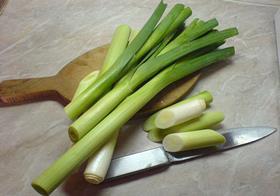
A national initiative to crack down on exploitation on migrant workers in the agricultural sector is being launched by the Association of Labour Providers (ALP), the Gangmasters Licensing Authority (GLA) and Migrant Help.
Stronger Together aims to raise awareness and educate the food supply chain about the problem, and opens on 24 October at Marks and Spencer.
It provides a toolkit for employers and labour suppliers with alert flags, a series of good practices guides and multi-language posters. The kit also has information on how to contact the GLA at an early stage, and includes a video featuring actors playing migrant workers to understand their side of the story.
ALP director David Camp said that the food industry is pioneering a joint approach in tackling the problem of exploitation. “We are trying to coalesce all people who want to do things properly and work together to tackle this horrible exploitation,” he said.
There will also be a series of regional workshops for suppliers and labour providers to understand why new exploitation is occurring and how to stop it.
The launch coincides with the recent BBC investigation into exploitation of leek pickers in the Fens, which found several labour providers operating illegally without a licence.
Camp said there had been an increase in the number of illegal gangmasters working within communities without the end clients knowing.
Several of the workers interviewed by the BBC reported bad living conditions, being made to pay bribes for work and frequent deductions from pay leaving some with less than £1 a week to live on. “It is happening in an informal and hidden way, and prior to the official supply chains,” Camp explained.
Any agency providing seasonal agricultural labour must hold a licence according to the Gangmasters Licensing Act put in place after the Morecambe bay tragedy nine years ago when 23 Chinese cockle-pickers drowned.
It is also illegal to use an unlicensed labour provider under the same act.
The BBC reported that Marks and Spencer, Waitrose, Asda and the Co-operative, which all sell leeks grown in the Fens, said they would act on any information of unfair treatment.
The GLA would not comment on the BBC’s exposé of exploitation on leek farms in the Fens but said it had several investigations ongoing across the country.



